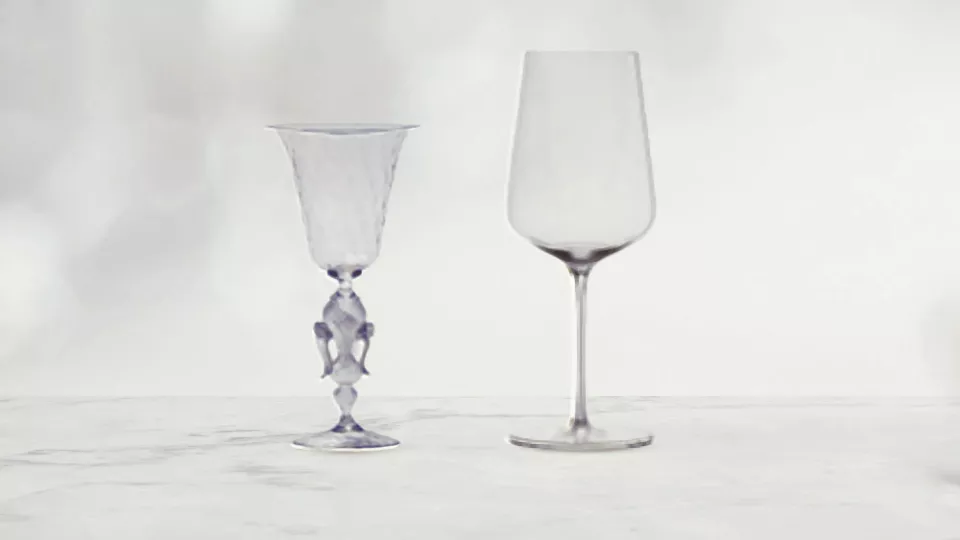Should the glass embellish the table or the wine?
- Opinion
Who has not lived the somewhat embarrassing experience of a well-intentioned host who, after having carefully decorated the table and prepared a magnificent meal, found a great wine at the neighbouring wine shop and served it to you in a magnificent glass which sadly did not bring out the best in the wine?
Glasses produced for centuries on the Venetian island of Murano are renowned for their elegance and the craftsmanship of master glassmakers. The glasses from the city of Biot in Provence are known for their colours and the chiselled glasses from the Baccarat crystal works always impress the guests with the delicacy of their design.
The expectations of guests are changing
For those who love wine, the glass plays an essential role in the process of tasting and drinking. To appreciate the colour of the wine, you need a transparent glass. To smell the wine, you need a tulip-shaped glass which guides the aromas to the nose. Finally, a comfortable flow to the palate enhances the overall experience.
For those who miss the old-fashioned charm of decorative glasses and find modern table settings cold and uniform, there is still the option of serving simpler wines. One cannot win on all fronts.
The French standardized INAO (National Institute of Designations of Origin) tasting glass was designed in 1970. Small, narrow, transparent, unremarkable but effective, it has become the approved tool for all official tastings.
Elegance and efficiency
If I mention this standard glass, the aim is not to encourage you to place it on your table but to highlight the work of glassmakers such as Claus Riedel. In the 1990s, he was the first to develop decorative and modern glasses suitable for wine tasting. Riedel was followed a decade later by the Zalto family in collaboration with Hans Denk. We should also mention the products of German industrial glassworks such as Spiegelau or Zwiesel-Schott.
These modern and elegant glasses are nowadays considered to be the ultimate choice for tasting fine wine and are used on more sober, contemporary tables.
On the market you will find a very extensive ranges of wine glasses. Some producers even say that each grape variety or region deserves its own glass shape. However, a good all-round choice is a tulip-shaped glass that is transparent and not too heavy. Beware of coloured glasses which will prevent you from appreciating the natural colour of the wine and avoid flared glasses which diminish the olfactory satisfaction.
Ultimately a great wine deserves the best possible conditions for tasting and enjoyment.



